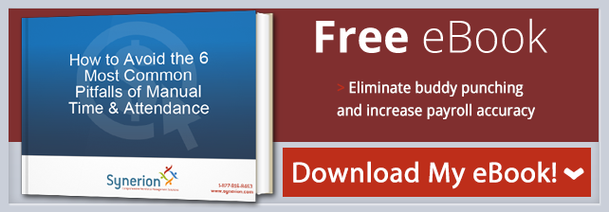 If time off policies were simply about the employer, there wouldn't be much time off. Many businesses struggle with writing policies pertaining to time off because a great policy can draw in excellent candidates and keep skilled workers, and a bad policy can chase them both away. If you're creating a time off policy for your company, use these tips to structure a fair deal for everyone.
If time off policies were simply about the employer, there wouldn't be much time off. Many businesses struggle with writing policies pertaining to time off because a great policy can draw in excellent candidates and keep skilled workers, and a bad policy can chase them both away. If you're creating a time off policy for your company, use these tips to structure a fair deal for everyone.
Share Time Accruals With Employees
Timekeeping software isn't just a way for management to ensure employees are on time, it also serves employees by keeping them informed about their time off. Employees need time to recharge and refresh to bring new ideas into a company. Encouraging employees to use their earned time is pivotal to innovation and one simple way employers can encourage their employees to use their time off is to be transparent about how much time they have available.
Create a Separate Vacation Policy
Recently, a study revealed that 56 percent of Americans had not taken a vacation in the last year. While the lack of required vacation hours may contribute to that figure, more often employees are hesitant to request vacation because they fear their responsibilities will be left unfilled or they may be seen as unnecessary to the organization.
To combat this fear, employers should create a separate vacation policy to create straightforward guidelines for using vacation so employees feel more comfortable requesting it. Include how much notice is needed and under what circumstances vacation may be denied. By creating a vacation policy, employees can feel more comfortable requesting their vacation benefits.
Consider Engagement
Employee engagement is a huge factor to consider when crafting a time off policy. Employers need their business properly staffed and responsibilities completed. Employees want to balance their home and work life, allowing for illness, bereavement, and time off to recharge with friends and family. Create a policy that's too strict and not only are your employees unproductive during crises, but you also become an unattractive employer for new candidates. Time off policies and employee engagement are linked and creating a policy that reflects that link is essential.
Deciding exactly how much allowance and leeway can be given in a time off policy can affect every aspect of your business. Look at not only the industry standards in your area but also the employee expectations. If you are in an industry where you need to reach milestones or specific goals, consider a more flexible time off policy that rewards employees who meet their goals rather than requiring them to be at a desk a certain number of hours.
…And Workload
There are some industries that simply can't allow unlimited time off policies or even flexible time off policies. Healthcare, food service, and manufacturing rely on a minimum number of employees being on staff during operating hours and without that staff, chaos ensues. When writing a time off policy, analyze your own business to see what type of policy you can support. If you rely on staff for certain hours, offer additional time off for attendance or seniority. Provide time off when it's convenient to benefit your employees and your business.
Time off policies can't be written haphazardly. They need to strike a balance of benefiting the employer and the employee. When business owners consider how they can structure their time off policy, write clear policies that address what is expected, and are transparent about employee time off, both employers and employees find satisfaction. Use these tips to write your time off policy to benefit you and your employees.
